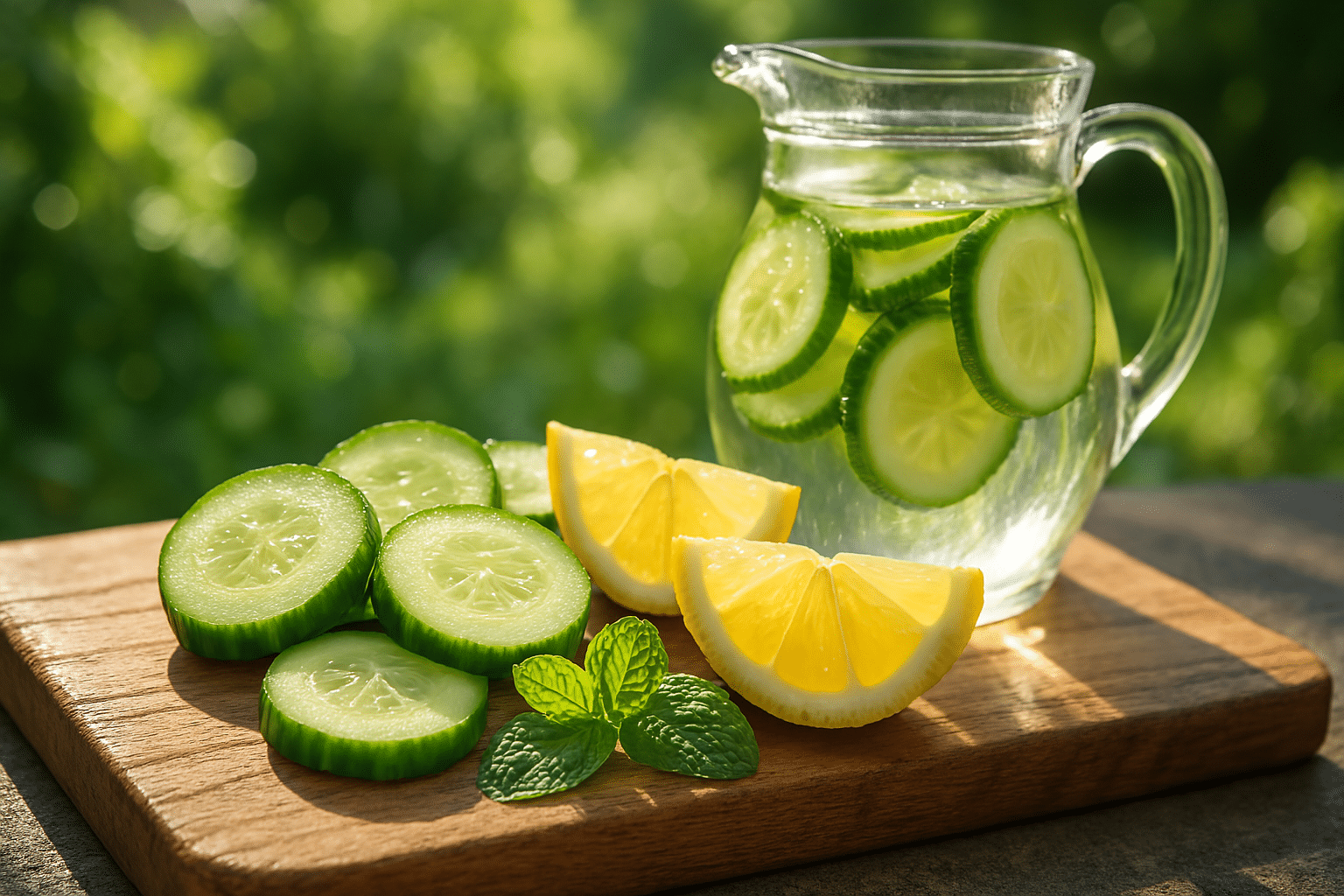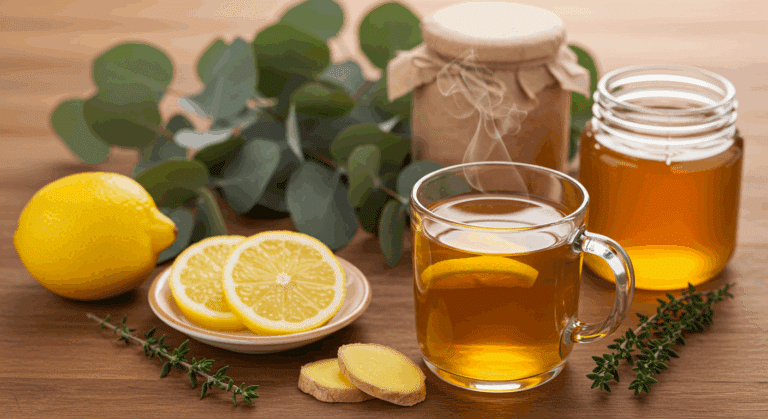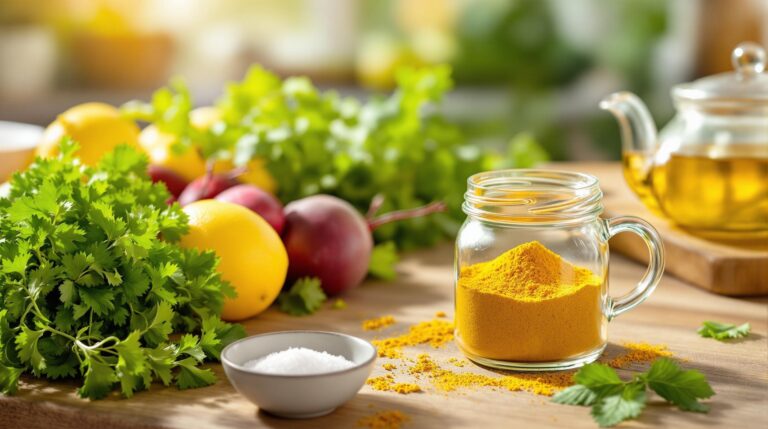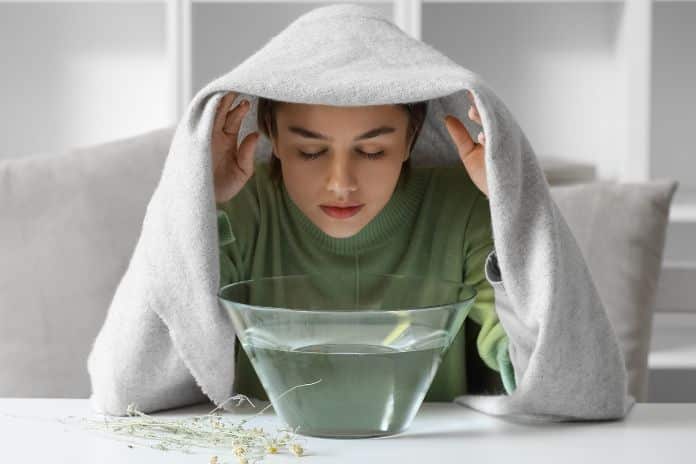6 Natural Remedies to Help Your Body Release Excess Water

If you’ve ever felt bloated or noticed your clothes fitting tighter, you’re likely dealing with excess water retention. Fortunately, there are natural remedies that can help your body release this surplus fluid. From adjusting your diet to incorporating specific herbs and supplements, there are practical steps you can take. Curious about what these remedies are and how they can improve your overall well-being? Let’s explore some effective options you can easily implement.
Incorporate Diuretic Foods Into Your Diet
To effectively combat water retention, you can incorporate diuretic foods into your diet.
Start with hydrating fruits like watermelon and cantaloupe, both packed with water and potassium to help eliminate excess fluids. Cucumbers are another excellent choice, as they contain carboxylic acid that aids fluid removal. Additionally, watermelon is known to boost nitric oxide synthesis, improving blood circulation and further supporting fluid elimination.
Natural diuretics can assist in reducing high blood pressure and swelling (oedema), making them beneficial for overall health. Many of these foods, such as celery seed, also have the added benefit of potentially lowering blood pressure. It is important to consult with a doctor before using these foods for their diuretic effects. Including citrus foods in your diet can also support overall health and boost your immune system.
Studies have shown that consuming diuretic foods can enhance kidney function, promoting more effective fluid elimination.
Don’t forget celery, which has natural diuretic properties thanks to its electrolytes. Pineapple also supports fluid elimination with its potassium and magnesium content.
Adding asparagus, garlic, and onions can further balance your fluid levels. For a revitalizing twist, enjoy diuretic teas like hibiscus or green tea, which stimulate kidney function.
Adjust Your Sodium and Potassium Intake
Here are some practical tips to take into account:
- Limit high-sodium foods like canned soups and processed snacks.
- Increase potassium-rich foods such as bananas, avocados, and sweet potatoes.
- Stay hydrated by drinking plenty of water to flush out excess sodium.
- Opt for low-sodium alternatives or seasonings to enhance flavor without added salt.
- Monitor your intake regularly to maintain a healthy balance between sodium and potassium.
Dehydration can lead to the body holding onto excess fluid, so ensuring proper hydration is crucial for managing water retention. Moreover, increasing potassium-rich foods can support fluid balance by counteracting sodium’s effects.
Keeping in mind that high sodium intake from processed foods can exacerbate water retention, focusing on whole, unprocessed foods will aid in maintaining fluid balance. Furthermore, reducing sodium intake may help decrease water retention, potentially improving skin texture and reducing the visibility of cellulite. Incorporating an anti-inflammatory diet can also help reduce overall inflammation, which may further assist in managing fluid retention.
Embrace Regular Physical Activity
Embracing regular physical activity is key to managing water retention effectively.
By engaging in activities like walking, running, or swimming, you can improve your circulation and muscle function, helping your body eliminate excess fluids. Excess sodium intake can exacerbate water retention, so staying active helps mitigate its effects. It’s not just about working out; even simple movements can make a significant difference in how your body handles water retention.
Furthermore, increased blood flow from physical activity aids in reducing swelling and promoting fluid balance throughout the body. Regular physical activity also supports hydration needs, ensuring that your body functions optimally and helps prevent fluid imbalances.
Maintaining an appropriate potassium and sodium balance through diet can enhance the effectiveness of your exercise routine in combating water retention. Moreover, engaging in regular physical activity can help strengthen your immune system, particularly with vitamin D being essential for optimal immune responses.
Benefits of Exercise
While you mightn’t realize it, regular physical activity can greatly improve your body’s ability to manage water retention. Exercise boosts circulation, helping your body efficiently move and eliminate excess fluids. Here are some benefits you can enjoy:
- Improved Blood Flow: Get your circulation pumping, aiding in fluid distribution.
- Reduced Swelling: Enjoy less swelling in your legs and feet.
- Enhanced Lymphatic Function: Activities like swimming act as a natural massage for fluid drainage, and the Cobra Pose can also improve blood circulation and enhance digestion. This is important because water comprises 50-60% of an adult’s total body weight.
- Sweating Mechanism: Release water through sweating, a natural detox process.
- Hormonal Regulation: Balance hormones that influence water retention.
Recommended Activities
Incorporating regular physical activity into your routine can greatly help combat water retention. Activities like yoga, running, and swimming stimulate blood flow, enhancing circulation and aiding in fluid balance. Regular exercise improves circulation, promoting the movement of excess fluid from tissues to the bloodstream. Additionally, engaging in activities that stimulate circulation can further assist in preventing fluid stagnation.
Yoga poses such as The Cobra Pose and The Shoulder Stand can improve digestion, while brisk walking is an easy addition to your day. Cycling offers a low-impact way to boost circulation, helping reduce swelling in your legs. High-intensity intervals stimulate muscle contraction, preventing fluid stagnation. Aim for at least 30 minutes of exercise five times a week and don’t forget to stay hydrated.
Elevate Your Legs for Improved Circulation
Elevating your legs can greatly improve circulation and reduce discomfort. By raising your legs, you promote better blood flow back to your heart, alleviating swelling and enhancing venous health. Additionally, this practice can help prevent blood clots by enhancing venous circulation and reducing pressure in veins. Incorporating regular leg elevation into your routine can also assist in alleviating the symptoms of water retention, which is common after long periods of sitting. Furthermore, this simple practice can significantly reduce swelling caused by excess fluid accumulation or inflammation.
Here are some key benefits of leg elevation:
- Improves blood circulation by reducing gravity’s effect.
- Reduces swelling caused by fluid buildup in the legs.
- Prevents blood clots, especially important after long periods of sitting.
- Alleviates symptoms of varicose veins, providing much-needed relief.
- Promotes overall comfort by relieving muscle tension. Additionally, elevating your legs can help reduce the risk of deep-vein thrombosis (DVT) by encouraging better circulation.
To maximize benefits, try to elevate your legs several times a day for 20-30 minutes at a time.
Keep your legs above heart level for best results, and enjoy the soothing relief that follows!
Explore Natural Supplements and Herbs
When tackling water retention, you might want to contemplate effective herbal diuretics like parsley and dandelion, which can help flush out excess fluid. Nutritional supplements, especially those rich in potassium and magnesium, also play a key role in maintaining fluid balance. Natural diuretics can be beneficial for various health conditions and should be considered within the context of a balanced diet and healthy lifestyle. Exploring these natural options can empower you to manage water retention more effectively.
Effective Herbal Diuretics
Herbal diuretics offer a natural way to manage water retention, providing an alternative to synthetic medications. Incorporating these herbs into your routine can help promote kidney health and increase urine flow.
Here are some effective herbal diuretics you can consider:
- Dandelion: Supports kidney health and relieves mild water retention.
- Parsley: Boosts urine flow and can easily be added to meals.
- Horsetail: Traditionally used for edema and renal issues.
- Juniper Berries: Enhances urine production and clears the urinary tract.
- Ginger: Shows potential diuretic effects, but evidence is limited. Herbal teas made from green tea can significantly increase urine production due to their caffeine content. Natural diuretics can aid in fluid reduction and are often found in various foods and beverages.
Try incorporating these herbs into your diet or through herbal teas for a natural approach to fluid balance.
Always consult a healthcare professional before starting any herbal regimen.
Nutritional Supplements Benefits
Incorporating nutritional supplements into your routine can greatly benefit your efforts to manage water retention.
Vitamin B6 supports red blood cell formation and helps balance fluids, while magnesium regulates fluid levels and alleviates hormonal retention symptoms.
Potassium is essential for maintaining healthy fluid balance and reducing sodium retention. Adequate electrolytes guarantee proper hydration and fluid distribution, and protein aids in tissue repair, potentially easing fluid retention.
To maximize these benefits, include potassium-rich foods like bananas and avocados, magnesium sources such as nuts and greens, and vitamin B6 from meats and fish.
Pair these supplements with a balanced diet, regular exercise, and proper hydration management to effectively combat water retention and enhance overall health.
Implement Stress Management Techniques
Implementing effective stress management techniques can markedly reduce water retention and improve your overall well-being. By addressing stress, you lower cortisol levels, which directly impacts fluid retention.
Here are some strategies to help you manage stress effectively:
- Practice Breathing Exercises: Deep breathing promotes relaxation and reduces cortisol.
- Engage in Regular Meditation: It balances hormones and can decrease water retention.
- Incorporate Yoga: This combines movement with mindfulness to relieve stress.
- Maintain a Consistent Sleep Schedule: Good sleep quality supports mental and physical balance.
- Stay Hydrated: Proper hydration mitigates stress responses and helps reduce water retention.
Frequently Asked Questions
Can Dehydration Cause Water Retention in the Body?
Yes, dehydration can cause water retention in your body. When you’re dehydrated, your body produces vasopressin, prompting it to retain water to maintain blood pressure and protect essential organs, leading to fluid buildup.
How Long Does It Take for Diuretics to Work?
Diuretics typically start working within 30 minutes if given intravenously, while oral options take about 1 to 2.5 hours to kick in. Their effects can vary, so timing’s essential for effective use.
Are There Any Side Effects of Natural Diuretics?
Yes, natural diuretics can cause side effects like electrolyte imbalances, dehydration, gastrointestinal upset, and allergic reactions. You should monitor your health and consult a healthcare provider before using them to avoid potential complications.
Is It Safe to Use Diuretics Long-Term?
It’s generally not safe to use diuretics long-term without medical supervision. They can lead to serious side effects like dehydration and electrolyte imbalances, increasing your risk of complications and potentially worsening underlying health conditions.
How Do I Know if I’m Retaining Water?
You can tell if you’re retaining water by noticing swelling in your legs, arms, or abdomen, feeling tight skin, experiencing stiffness in your joints, or seeing sudden weight gain without changes in diet or activity.
Conclusion
By incorporating these natural remedies into your routine, you can effectively help your body release excess water. Start by enjoying diuretic foods and adjusting your sodium and potassium intake for balance. Don’t forget to stay active, elevate your legs, and explore herbal supplements. Finally, practice stress management techniques to support your overall health. With these simple changes, you’ll not only reduce fluid retention but also feel more energized and revitalized.
References
- https://birchwell.clinic/natural-ways-reduce-water-retention/
- https://www.healthline.com/nutrition/6-ways-to-reduce-water-retention
- https://www.betterhealth.vic.gov.au/health/conditionsandtreatments/Fluid-retention-oedema
- https://opentextbc.ca/writingforsuccess/chapter/chapter-9-citations-and-referencing/
- https://www.orlandohealth.com/content-hub/8-ways-to-get-rid-of-water-retention/
- https://www.medicinenet.com/the_12_best_natural_diuretics_to_eat_or_drink/article.htm
- https://www.fortishealthcare.com/blogs/best-natural-diuretics-reduce-water-retention
- https://www.goodhousekeeping.com/health/diet-nutrition/a20707480/natural-diuretics/
- https://www.mayoclinic.org/healthy-lifestyle/weight-loss/expert-answers/water-retention/faq-20058063
- https://www.healthline.com/health/natural-diuretics






